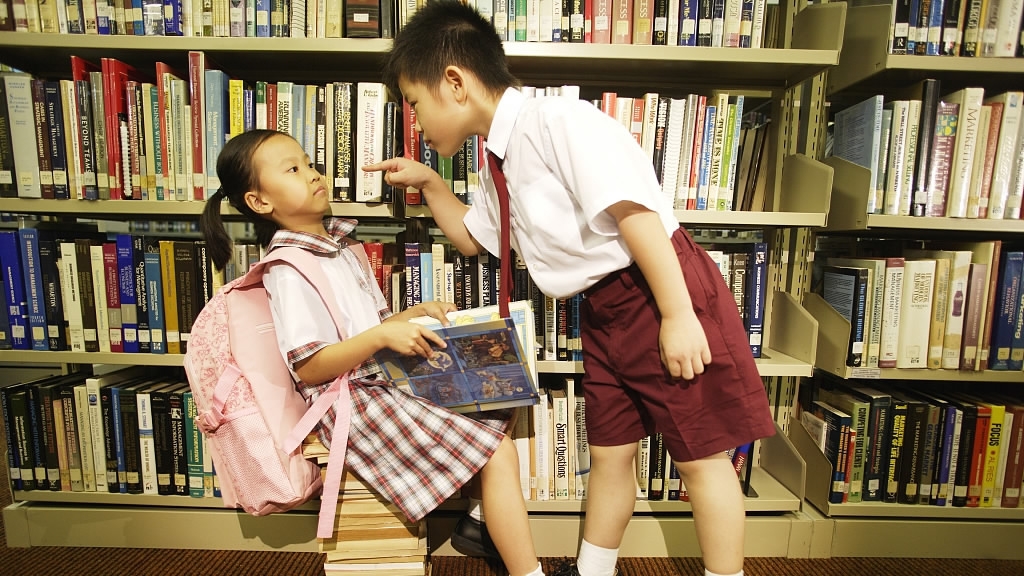
From the People’s Daily app.
This is Story in the Story.
According to a report released by the Supreme Court in June, China has become one of the countries in the world with lowest juvenile crime rates, with about 40,000 cases reported to courts across the country in 2017.
However, juvenile crime has witnessed an increase in recent years. In the past decade, the number of criminals aged between 13 and 16 climbed from 10 percent to 11.48 percent.
Jiang Jihai, dean of the juvenile court guidance office under the Supreme Court, noted that the number of criminals aged between 14 and 16 in the country increased from 3,400 in 2016 to 3,700 in 2017.
Zhou Bin, a police official from Suzhou, East China's Jiangsu Province, said that he indeed witnessed an increase in the number of juvenile crime cases in his daily work in the past six months.
Today’s Story in the Story looks at how Chinese experts called for strict laws and education reform to reduce lawbreaking by juveniles.

A prosecutor interacts with students of a middle school in Zhoujiadian county of Changde, Central China's Hunan Province. (Photo: Global Times)
It is reported that juvenile criminals who have completed middle school or less account for over 68 percent of those sent to courts from January 2016 to December 2017.
In China, current compulsory education only covers 9 years, requiring students to attend primary and middle school. Normally students graduate from middle schools at 15 in China, but they are not allowed to work until they are 16.
The gap year creates a group of idle young people who are easily drawn to crimes, Jiang explained.
Jiang suggested that compulsory education should be expanded to 12 years to cover high school.
Wan Daqiang, a Beijing-based lawyer who specializes in child protection, said that outdated exam-oriented Chinese education is partly responsible for the increase in juvenile crime, as it neglects children's mental growth in this rapidly changing society.
Han Fangli, a member of the Higher People's Court judicial committee in East China's Shandong Province, noted an increase in the number of juvenile criminals with psychological problems, such as anxiety and depression, in Shandong in 2017, the China News Service reported in May.

School bullying is still taken as an education issue. (Photo: CGTN)
Some experts believe that stricter laws are also needed to prevent juvenile crime.
Chinese criminal law stipulates that people under 16 do not bear criminal responsibility. They instead should be educated by guardians or the government.
Chinese law prefers protection over punishment when it comes to minor crimes, said Zhou.
Lao Kaisheng, a professor of education at Beijing Normal University, pointed out that punishment regulations on juvenile criminals are not strict and detailed enough, and thus not effective for frightening young people.
"Take school bullying as an example. The issue is still taken as an education issue, for which schools and families should be responsible," Lao said.
The Chinese State Council's Education Supervision Committee released a regulation in December 2017 to manage school bullying, saying that bullies involved in serious cases who have not violated the law should be sent to special schools for correctional education.
Lao worried that the regulation may be difficult to implement, as many Chinese parents would not agree to send their spoiled only child to these schools.
According to China's Law on Prevention of Juvenile Delinquency, underage students who need special education can only be sent to special schools after receiving an agreement from their parents or guardians, and the approval from local education bureaus.
(Produced by Nancy Yan Xu, Elaine Yue Lin, Lance Crayon and Brian Lowe. Music by: bensound.com. Text from Global Times.)


